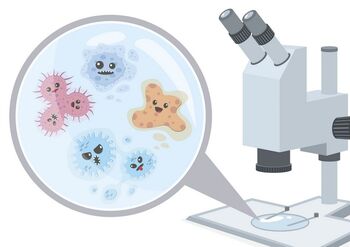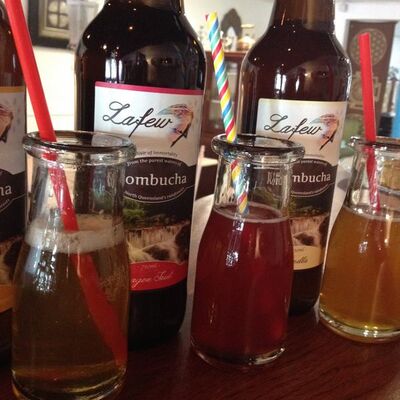Science says good health starts in your gut
Our resident health columnist Dr Alex Bernhardi explains the ins and outs of your gut and how important it is to your overall health.

It has become common knowledge over the last couple of years that healthy gut bacteria are fundamental to our physical and mental health.
To talk about your gut used to be done only through expressions like "I have a gut feeling", "It gives me the runs" or "I have butterflies in my tummy".

But lately it has advanced to a more scientific level.
Talk about "Lactobacillus acidophilus" and "the microbiome" is now considered a perfectly adequate dinner topic.
The shelves are full of probiotic supplements (good bowel bacteria) and you cannot miss the corresponding ads on TV or in magazines.
Lots of research projects have been and are being undertaken to explore the role of the trillions of bacteria that live in the inside of our bowels.
We need them to help break down and shift the nutrients of the food we digest into our blood and our cells.
Scientists also found out that the composition of bowel bacteria varies in people with different physical and mental health conditions as well as between genders and races.
A healthy microbiome (the right balance between good and bad bacteria) seems to be essential for our endocrine, immune, digestive, and nervous systems.
Given all this exciting evidence shouldn't we now all take extra probiotics? No – I don't think so.
Firstly, there are many strains of probiotics and we are only just starting to understand the specific significance.
Secondly, as with everything else, too much of a good thing can be counterproductive. What might be good for one might have a different effect for the next person.
Some studies however have looked into specific strains for some common ailments (including bloating, constipation and diarrhoea) and found that they can be beneficial if used correctly and in conjunction with a good diet.

One of the most important things to keep your bowel bacteria happy and in balance is A GOOD DIET.
If you have a varied diet based on fresh ingredients of all sorts you are more likely to provide your gut with the optimal amount of probiotics than if you have convenience food (take away/processed food) and throw in some extra supplements.
A recent Australian study shows that eating intermittent junk food three days a week can shift the composition of gut bacteria towards a pattern seen in obese rats who consumed this type of diet continuously.
While more research needs to be done in humans, common sense suggests that a balanced and varied diet is essential for our health.
Looking into traditional food of different cultures we find that all cultures have certain foods rich in probiotics.
Probiotics are mainly found in food that has been fermented. Fermentation is the process of converting carbohydrates to alcohol or organic acids using microorganisms—yeasts, bacteria or moulds—under anaerobic conditions.
This process preserves the food and creates beneficial enzymes, B-vitamins, Omega-3 fatty acids, and various strains of probiotics.
Yoghurt and kefir, olives, sauerkraut, kimchi, tempeh and miso are just some of the more common fermented foods.
Kombucha is another beverage made out of tea, water and yeast which is enjoying increased popularity.
Kombucha can be found in many health food shops, the local markets, some supermarkets as well as in some cafes in Cairns such as the Lafew Teahouse and Kombucha Bar.
As with everything else it is important to check for the amount of added sugar (which will be counterproductive) and other ingredients such as artificial flavours, colours or sweeteners (especially in yoghurt).
Be careful if you haven't eaten any of these products before as your digestive system needs to get used to it first.
As with everything else eat or drink these products in moderation and if available choose organic and local products.

